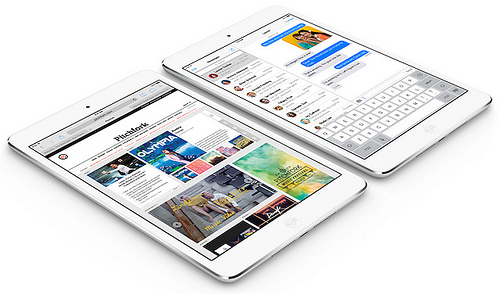 Mobile technology has definitely revolutionized the way businesses are advertising and marketing these days, but businesses have a lot to gain from embracing the mobile movement, beyond increased sales figure.
Mobile technology has definitely revolutionized the way businesses are advertising and marketing these days, but businesses have a lot to gain from embracing the mobile movement, beyond increased sales figure.
Mobile optimized websites — responsive and friendly for mobile users — are a must have in today’s mobile driven world. After all, a company that aims to grow their reach, engage more customers, boost traffic, and increase sales needs a mobile presence just as user friendly as that on the desktop.
The fact that buyers want a good mobile experience is backed by solid data. But, while a mobile optimized corporate website might help you increase your bottom line, the benefits of integrating mobile into your business operations far outweigh financials.
Know what Matters most for your Business Using Mobile Analytics
With Big Data and IoT emerging as the new realities in the consumer landscape, forward-thinking companies are embracing the need for data-driven insights for making bigger business decisions.
More and more users are shifting from a desktop environment to a mobile one, and the data trail we leave behind while browsing the internet, using a mobile app, or playing games on our mobile devices is growing at an alarming rate.
Harnessing the power of mobile analytics allows businesses to design better mobile-strategies, send out targeted messages, and track metrics that impact their bottom line.
Mobile Movement is Transforming the Digital Workplace
Mobile has been a transformative wave in the workplace, freeing the employee from the confines of the office and allowing them to be more productive. In fact, mobile has many of us wondering why we are still working nine to five.
Workers are looking for flexible work arrangements, and trends like BYOD (Bring Your Own Device) are being adopted by many businesses across the world to promote flexible work arrangements. The mobile movement is not just enabling people to work at home, but enabling people to work when and where they are most productive.
Shouldn’t we be working in ways that create the best results? The mobile movement is really about empowering the workforce, allowing them to work on anything, anywhere, and on any device, and it is taking enterprise collaboration to a whole new level.
Mobile has given us the ability to work, shop and socialize online from virtually anywhere, which is precisely why smartphones and tablets are quickly replacing desktops as the primary device for browsing the Internet. Today, they come with capabilities almost equivalent to our computers; wearable tech is becoming the next wave of communication and community interaction; and internet connectivity is ubiquitous with hotspots and increased public Wi-Fi availability.
If you really want to make the most of the mobile movement, you need to explore its scope beyond the area of mobile commerce. Leveraging the benefits of mobile to introduce a better collaboration model within your organization, using it to create a happier and more productive workforce, and generating — and acting on — data-backed insights using mobile analytics are three of the best use cases for mobile devices in the enterprise.
This post originally appeared on forbes.com.
Other Resources on this Topic:
Google’s Mobilegeddon: Get Your Website Ready for Mobile. Now
3 Things You Really Should Know About Mobile Payments
Talking SMAC: Revisiting social, mobile, analytics and cloud
Photo Credit: chargoodell68 via Compfight cc